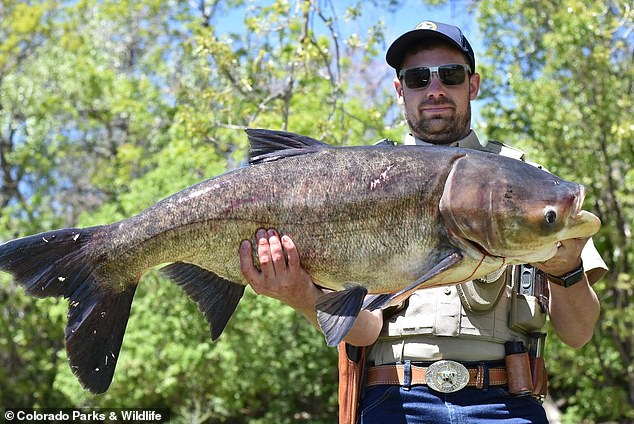Colorado wildlife officials have fished 14 gargantuan carp from a pond because they ate so much plankton they threatened the entire aquatic ecosystem.
The 40-pound monster fish was removed from Arvada’s Jack B Tomlinson Park on Wednesday after officials deemed them “prolific feeders” and a “nuisance species.”
Colorado Parks and Wildlife said a fisherman told them about the disturbingly large fish, which were introduced in 1992 as part of an experiment.
The group’s aquatic biologists said they removed the carp by emitting electricity into the water and stunning the fish into a temporary stupor.
Stunning photographs show officials holding the more than a meter long fish afterward. They said the heaviest weighed 46 pounds.
Colorado wildlife officials have fished 14 giant carp from a pond because they ate so much plankton they threatened the entire aquatic ecosystem.
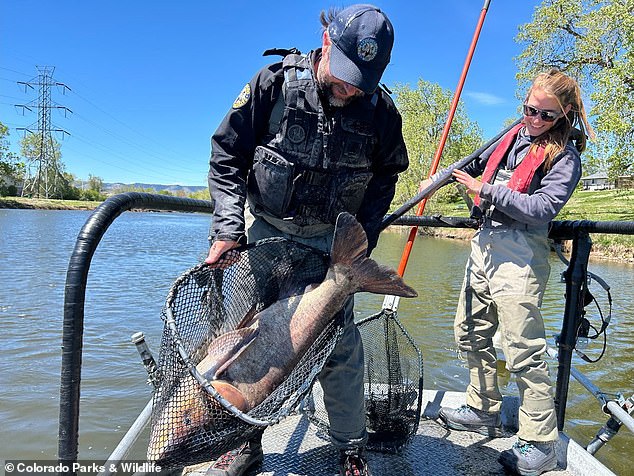
Colorado Parks and Wildlife said a fisherman told them about the disturbingly large fish, which were introduced in 1992 as part of an experiment.
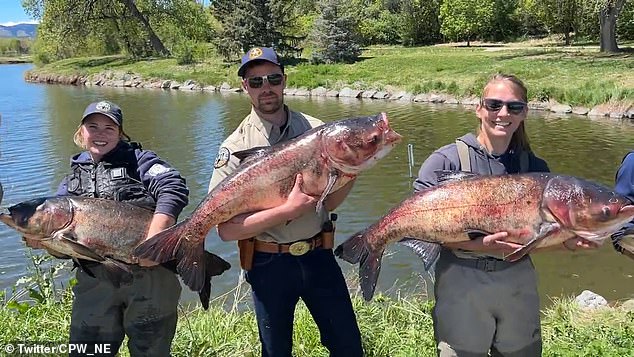
The group’s aquatic biologists said they removed the carp by emitting electricity into the water and stunning the fish into a temporary stupor.
“Bighead carp are filter feeders and can grow to incredible sizes in bodies of water large and small,” said CPW Invasive Species Program Director Robert Walters.
“Once established, these fish can compete with native Colorado species for food and resources.”
The bighead carp is part of the Asian carp family. They feed mainly on plankton and compete with native species that depend on the same food source.
Because they are not native to Colorado, they negatively impact the overall ecosystem by being “prolific feeders,” according to Colorado Parks and Wildlife.
Foreign carp were introduced to the Denver pond in 1992 as part of an experiment to see if they would reduce problem algae.
They were supposed to be eliminated at the end of the experiment in 1995, but the nuisance carp persisted in the waters.
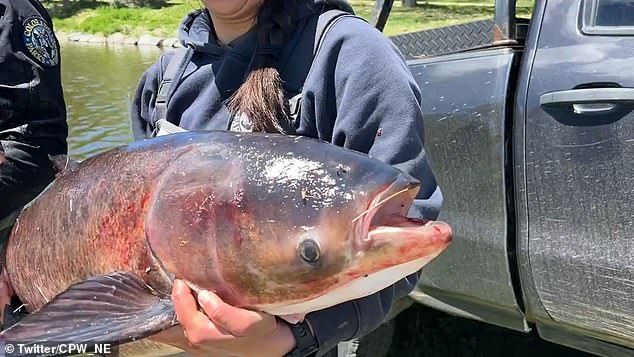
Foreign carp were introduced to the Denver pond in 1992 as part of an experiment to see if they would reduce problem algae. They were supposed to be eliminated at the end of the experiment in 1995, but the nuisance carp persisted in the waters.
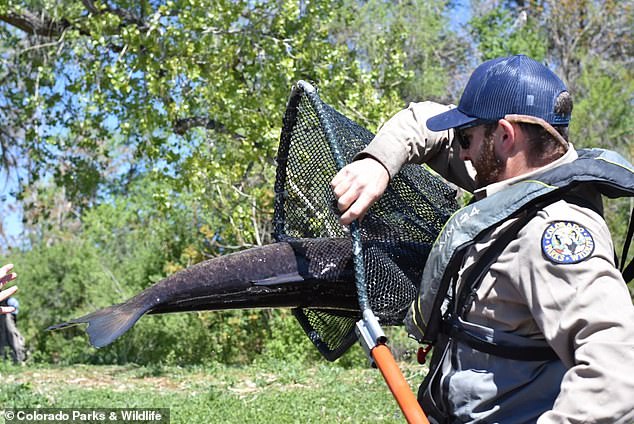
The 40-pound monster fish was removed from Arvada’s Jack B Tomlinson Park on Wednesday after officials deemed them “prolific feeders” and a “nuisance species.”
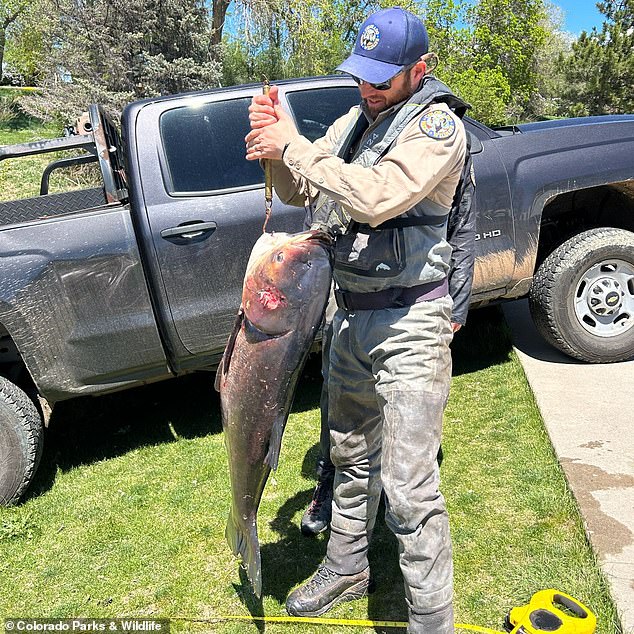
The bighead carp is part of the Asian carp family. They feed mainly on plankton and compete with native species that depend on the same food source.
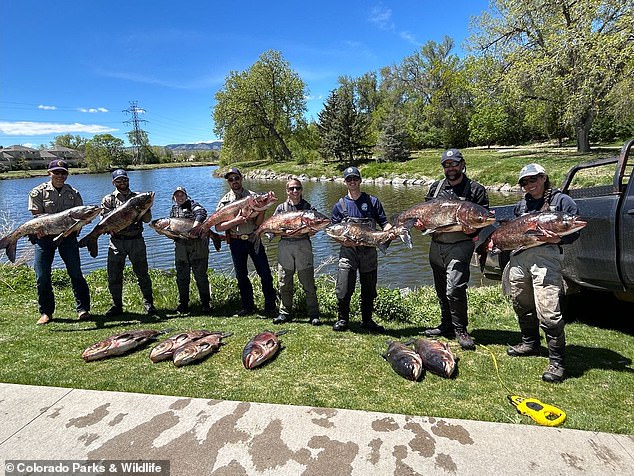
Stunning photographs show officials holding the more than a meter long fish afterward. They said the heaviest weighed 46 pounds.
“The size of the bighead carp removed indicates that natural reproduction most likely did not occur, which was a best-case scenario,” said Kyle Battige, senior aquatic biologist for CPW’s northeast region.
“This operation started with a tip from a fisherman,” added Philip Sorensen, CPW district wildlife manager for Westminster and Arvada.
‘We are grateful when the public reaches out to tell us about invasive species in their neighborhoods. We want to know about the presence of invasive species.’
CPW said experts will continue to check the pond for any remaining carp. They have people in Colorado who can file a report if they spot any “suspicious aquatic species.”

